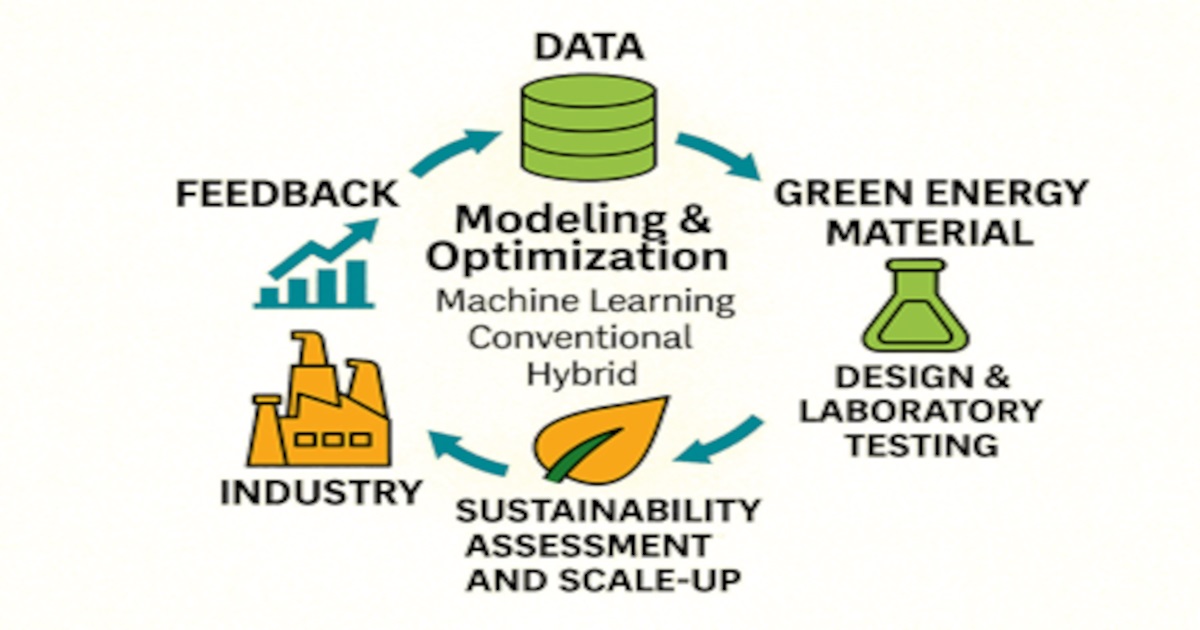Modeling and Optimization for Green Energy Materials: Machine Learning, Conventional, and Hybrid Approaches
A special issue of Processes (ISSN 2227-9717). This special issue belongs to the section "Energy Systems".
Deadline for manuscript submissions: 20 May 2026 | Viewed by 3506

Special Issue Editors
Interests: machine learning; process modeling and optimization; energy systems; green materials; coatings and films
Special Issue Information
Dear Colleagues,
Developing green energy materials for generation and storage is crucial to advancing sustainable and resilient energy systems. In recent years, the convergence of traditional process modeling and artificial intelligence tools has created new opportunities to design, optimize, and scale these materials more efficiently and with a lower environmental impact.
This Special Issue, "Modeling and Optimization for Green Energy Materials: Machine Learning, Conventional, and Hybrid Approaches", aims to compile research that integrates mechanistic simulation methods, machine learning, and hybrid strategies to study energy materials. Topics of interest include, but are not limited to, the following:
- Modeling, process simulation, and optimization to produce green energy materials using conventional or hybrid approaches.
- Applications of machine learning and artificial intelligence in the design, prediction, and control of sustainable materials and processes.
- The integration of digital tools and application of process simulators and data-driven models to enhance energy efficiency and material performance.
- Techno-economic, environmental, and life-cycle assessments supported by simulation and intelligent modeling techniques.
We welcome original contributions, both experimental and computational, that advance the state of the art of materials science, process engineering, and data science regarding the energy transition.
We look forward to receiving your contribution and working together to establish a Special Issue with a significant scientific and technological impact.
Sincerely,
Dr. Anibal Alviz-Meza
Prof. Dr. Viatcheslav Kafarov
Guest Editors
Manuscript Submission Information
Manuscripts should be submitted online at www.mdpi.com by registering and logging in to this website. Once you are registered, click here to go to the submission form. Manuscripts can be submitted until the deadline. All submissions that pass pre-check are peer-reviewed. Accepted papers will be published continuously in the journal (as soon as accepted) and will be listed together on the special issue website. Research articles, review articles as well as short communications are invited. For planned papers, a title and short abstract (about 250 words) can be sent to the Editorial Office for assessment.
Submitted manuscripts should not have been published previously, nor be under consideration for publication elsewhere (except conference proceedings papers). All manuscripts are thoroughly refereed through a single-blind peer-review process. A guide for authors and other relevant information for submission of manuscripts is available on the Instructions for Authors page. Processes is an international peer-reviewed open access semimonthly journal published by MDPI.
Please visit the Instructions for Authors page before submitting a manuscript. The Article Processing Charge (APC) for publication in this open access journal is 2400 CHF (Swiss Francs). Submitted papers should be well formatted and use good English. Authors may use MDPI's English editing service prior to publication or during author revisions.
Keywords
- green energy materials
- machine learning
- modeling and simulation of processes
- sustainable process engineering
- data-driven process engineering
- digital twins
Benefits of Publishing in a Special Issue
- Ease of navigation: Grouping papers by topic helps scholars navigate broad scope journals more efficiently.
- Greater discoverability: Special Issues support the reach and impact of scientific research. Articles in Special Issues are more discoverable and cited more frequently.
- Expansion of research network: Special Issues facilitate connections among authors, fostering scientific collaborations.
- External promotion: Articles in Special Issues are often promoted through the journal's social media, increasing their visibility.
- Reprint: MDPI Books provides the opportunity to republish successful Special Issues in book format, both online and in print.
Further information on MDPI's Special Issue policies can be found here.






